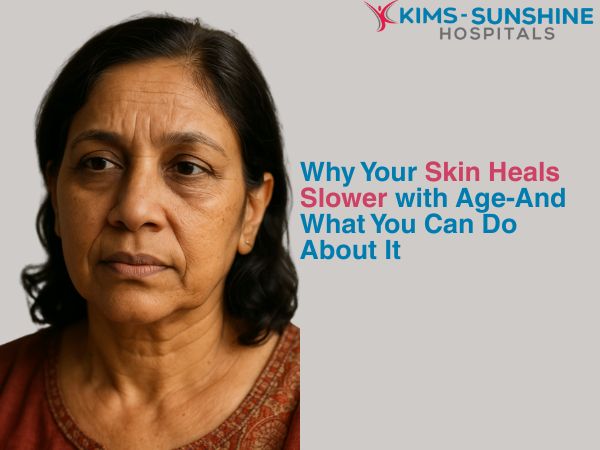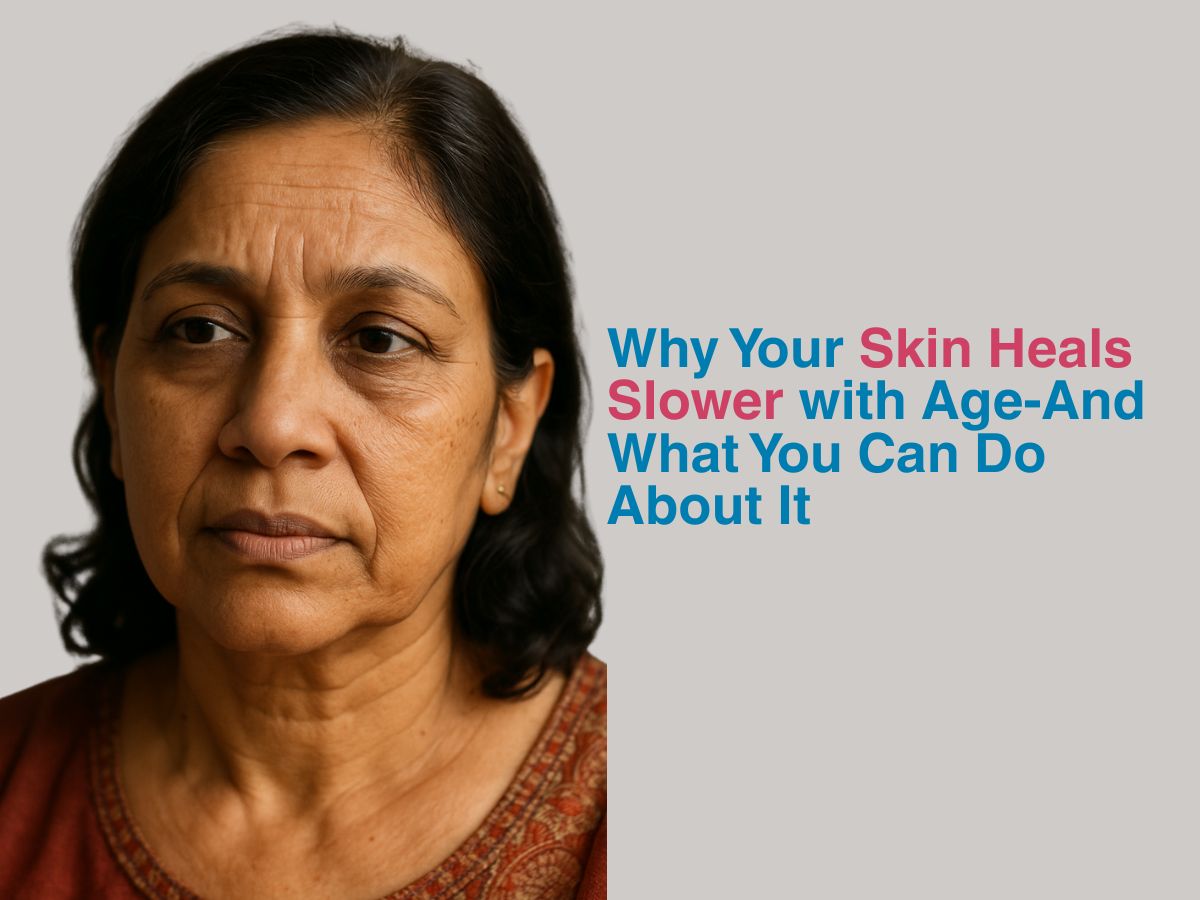
Why Your Skin Heals Slower with Age-And What You Can Do About It

The scientific study of skin (dermatology) has baffled mankind ever since time immemorial. Contrary to the popular saying- “Time is the greatest healer,” our skin shows a slowing down in terms of healing and repair as we age. Essentially, the skin is made up of three layers-the epidermis, dermis, and hypodermis. All these layers have different structures and functions but specific to healing, the epidermis and dermis which have stem cells, are involved in the process of repair. However, as we age, it is especially important to know how to improve skin healing in older adults.
Why does skin heal slower as you age?
Our skin tends to develop wrinkles and sags easily as we age. It also loses its ability to repair itself after an injury. To understand this better, let us first know about the mechanism of healing. It is a very complex process of nature and consists of four stages. Healing starts with hemostasis. Inflammation and proliferation are the next ensuing stages. Finally, the last stage is that of remodelling. These processes slow down as we age because of decline and changes in the skin structure and function, lower immune response, and reduced blood flow to the skin. This is how age affects skin regeneration.
Collagen is an essential component of the final two stages of the wound healing process. Collagen provides structural support, attracting newer cells for repair at the site of injury, and promotes new tissue growth. Collagen and skin healing in the elderly, both get affected as collagen levels in the skin get depleted. This is primarily why slow wound healing in elderly is commonly observed.
Why wounds take longer to heal after 50
Wound healing slows down post 50 years in an individual due to several contributing factors. Some of these include impaired microcirculation, less cellular activity, and changes in how the immune system responds. With advancing age, the skin loses its elasticity due to lack of collagen formation, and also reduction in the number of stem cells and immune cells that participate in the healing process. Additionally, older individuals may have some chronic illness such as diabetes which makes the healing process even more complicated.
Tips to heal cuts faster in old age
Listed below are some tips that can help cuts or wounds heal faster in old age:
- Avoid taking medications that can interfere with the body’s natural repair mechanism. A class of drugs to avoid in this regard are NSAIDS (Non-steroidal anti-inflammatory drugs).
- Consume more fresh fruits and green, leafy vegetables. Your body needs nourishing food to fuel the body as it heals. Eat more fruits that have high Vitamin C content which helps to build collagen.
- Always keep your wound dressed and warm. Wounds heal faster if they are kept warm. So, even while wound dressing try to limit exposure time of the wound.
- Never use antiseptic creams, sprays, or washes on a chronic wound. These preparations have a poisonous effect on the cells involved in wound repair.
- Exercise regularly as it facilitates blood circulation and helps in faster wound healing.
- Manage chronic health conditions such as diabetes, well.
By following the above tips, you can aid skin recovery in seniors. Other than this, there are certain natural remedies for slow skin healing. To combat the slow wound healing process, you can try using aloe vera gel, coconut oil, or even honey on the cuts and wounds. These have antimicrobial properties and they are rice in moisture. Turmeric application on the wounds is also beneficial as it has curcumin, a compound which possesses antimicrobial and anti-inflammatory properties that assist in quick healing of wounds. These natural methods on how to support skin recovery in seniors will go a long way in faster healing and repair of cuts and wounds.






